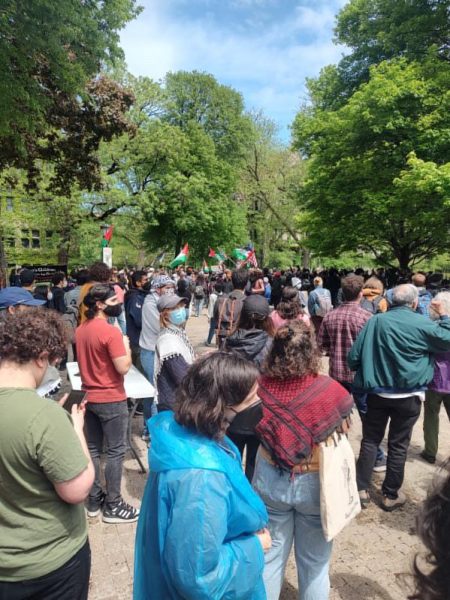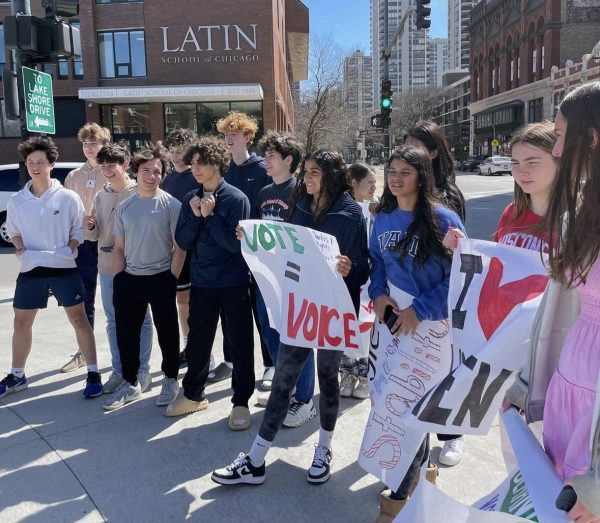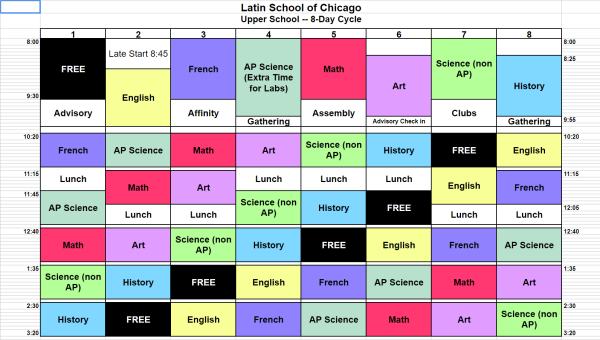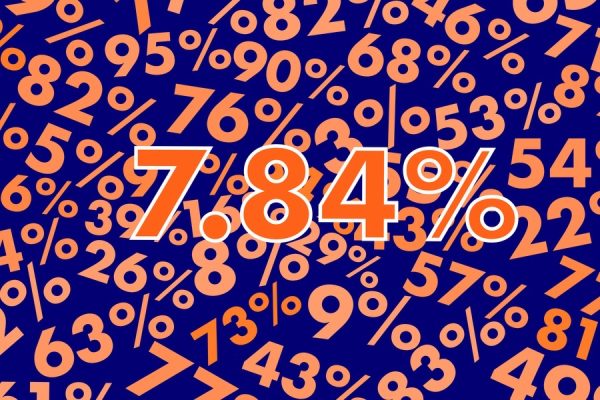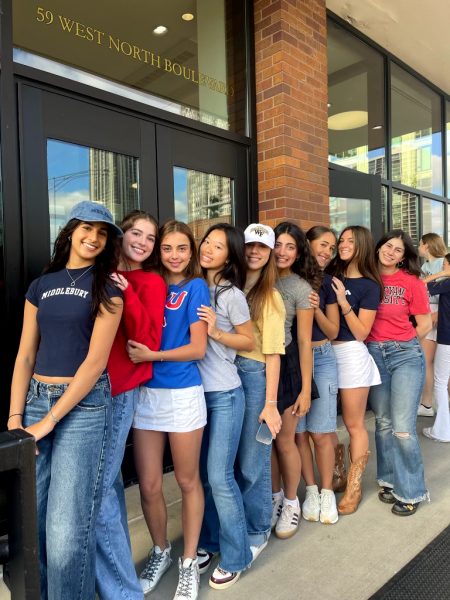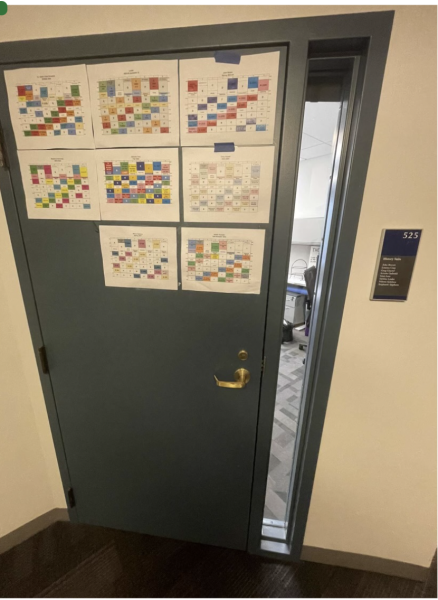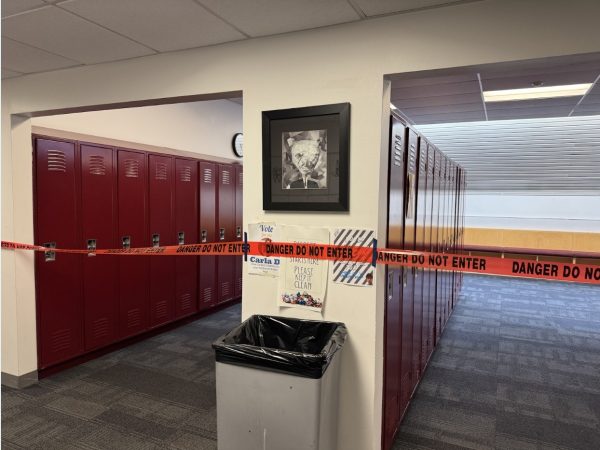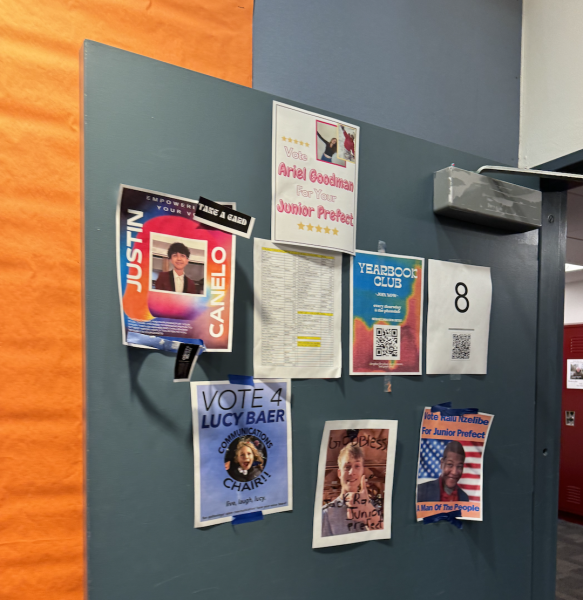Chauvin Trial Concludes: Latin Reacts
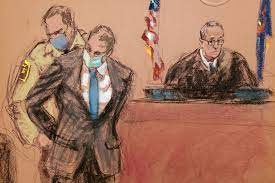
A cartoon depicts the courtroom scene.
Nearly a year after the tragic killing of George Floyd was nationally broadcasted, Derek Chauvin, the former police officer on trial for Floyd’s death, has been convicted of second-degree unintentional murder, third-degree murder and second-degree manslaughter. As anticipated, the Chauvin verdict ignited an array of reactions as it rang out within the Latin community and across news platforms nationwide.
For many, it took time to put words to the emotions felt upon hearing the word “guilty” follow each of Chauvin’s counts. “Plainly—I felt relief that the jury made the right decision,” Upper School history teacher Stephanie Stephens said. “And I feel a deep sadness that as a nation, it’s come to witnessing a live murder on a phone video to mobilize historical injustices.”
In agreement, Upper School English teacher and DEI Curriculum Coordinator Brandon Woods said, “At first, I felt a wave of relief, as if this verdict felt like some small measure of progress. Then, immediately after that initial feeling of relief, I felt sad because what I took as progress relied on the death of yet another person of color.”
The three-week trial fell at a tumultuous period for the nation, as its concurrence with the deaths of two young men of color—Daunte Wright and Adam Toledo—at the hands of police officers were fresh in the minds of many. Senior Koren Jurado said, “I think that the recent cases of police brutality put even more public pressure on the jury to get it right.”
Such a series of abhorrent events has emphasized the present need for permanent, systemic change to address racial injustice in policing. “I feel a deep sadness that 17-year-old young adults have to witness murders by police,” Ms. Stephens said. “And I feel horrified as a mother of an 11-year-old boy that police shoot 13-year-old boys.”
As if the devastating cases of Wright and Toledo weren’t enough, just as Chauvin’s guilty verdict was projected across millions of screens, 16-year-old Ma’Khia Bryant was fatally shot by police in Columbus, Ohio. The simultaneous steps forward and backward spoke to how deeply racism is ingrained in the nation, and how stunted the progress toward justice has become. “Racial injustice within the criminal justice system has been occurring for decades,” junior McKenna McMurray said. “There have been many cases of injustice that have not been brought to the public eye where justice was not upheld. If George Floyd’s case didn’t receive the mass attention it did, I believe that justice may not have been delivered.”
Without the graphic, 8-minute-and-46-second footage depicting George Floyd’s final moments, it is unlikely that his case would have received a fraction of the “mass attention” that McKenna referenced. “I think, more so than anything, the video recording was pivotal in the prosecution securing a guilty verdict,” Mr. Woods continued. “And I do not think we can overestimate the impact of the Black Lives Matter movement. Their sustained efforts made it hard for people not to see the connection between systemic racism and policing.” Still, Koren said, “It is heartbreaking that the nation had to hope and pray that our legal system would put away a man whose murder was literally recorded.”
If nothing else, the Chauvin trial’s overwhelming spotlight has triggered both a widespread demand for police reform, and a gratitude toward those officers who continue to protect indiscriminately. “Although accountability has been served to one racist police officer, so many minorities will continue to suffer racial injustice from police because policing in this country is inherently racist,” Koren said. “We must not get complacent until substantial reform is achieved.”
Ms. Stephens noted, “I feel guilty that my tax dollars arm police and train them to use guns against citizens.” More optimistically, she added, “But I feel great appreciation for Latin School’s Chanel King, Director of Operations, who quietly keeps our community, including my daughter, safe each day during citywide protests, nationwide pandemics, constant school shooting threats, et cetera.”
While it has been difficult to comprehend the tragedy of George Floyd’s death, as well as the national turbulence that followed, perhaps what we may now ask ourselves is why it feels appropriate to celebrate Chauvin’s guilty verdict but not to feel joy. Precisely where do we go from here, as members of both our local communities and a systemically divided nation? In response to this exact question, each interviewee had a distinct message to share.
“In all honesty, I do not think that the Latin community can do much but educate its students on the criminal justice system, and inform its students of their rights,” McKenna said. “Racial injustice as we all know is a systemic issue and thus needs to be tackled at a federal level. I believe there needs to be change internally within our systems and a thorough review of our system’s inner workings.”
“It is important for everyone to remember that this guilty verdict is not justice; it is the bare minimum,” said Koren. “What I want to see more of is for people to practice activism on the individual level. Everybody should be working to not only educate themselves on what’s wrong with this country, but why they are wrong. Listen to the stories and perspectives of marginalized communities before you form your own solutions to a problem. Ignorance can ruin movements.”
“We have to rethink policing in this country, of course,” said Mr. Woods. “Again, I think Black Lives Matter is offering a way to think intersectionally about these issues. As movements before them, such as Dr. Martin Luther King Jr.’s ‘Poor People’s Movement,’ stressed, you cannot separate the various manifestations of systemic racism and oppression. We have to see how these issues have a common source. In terms of moving forward, we have to get to a point where we do not need to see Black suffering and loss of life before we acknowledge the problems.”
“For now,” said Ms. Stephens, “I’ll continue to use whatever white privilege I have to: a) push back against systemic racism by advocating for equity and democracy where I work and live, b) shine a light on our world’s history of racism, c) continue teaching students how to read, think, care, and act, and d) foster love and resilience in my children so that they will advocate for social justice. Today when I turned on the radio … I heard In the Name of Love—paying homage to Martin Luther King, Jr. How did this young, Black man endure so much and remain committed to love and nonviolent resistance? We’re all being tested now. It’s time to act ‘in the name of love.’”

McKenna Fellows (‘22) is a senior at Latin, and is elated to serve as one of this year’s Editors-in-Chief. She is an avid reader and writer, and in...






































